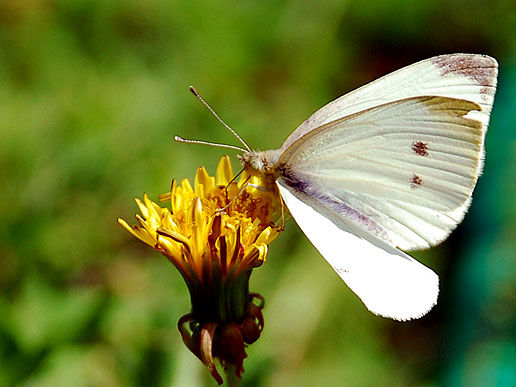
By Caroline Lewis of Verdura Culinary Gardens
 Admittedly, some of us are squeamish about bugs. I’m a professional vegetable gardener, and I can’t say I like sticking my hand into a tomato plant if I see a spider. Yet I know spiders eat a lot of the insects that threaten our edibles. So I leave them in peace, but I’ll admit I keep a wary eye on them.
Admittedly, some of us are squeamish about bugs. I’m a professional vegetable gardener, and I can’t say I like sticking my hand into a tomato plant if I see a spider. Yet I know spiders eat a lot of the insects that threaten our edibles. So I leave them in peace, but I’ll admit I keep a wary eye on them.
Kids tend to have an innate curiosity about many things that perhaps make the rest of us squeamish. If we want to nurture that sense of wonder while we teach the next generation about organic gardening, then we might want to show them that not all bugs are bad. Many are actually the unsung heroes of the garden. And the best way to teach our kids is first to educate ourselves.
Predatory Insects
Lady beetles are the obvious friends. They just look friendly, like tiny spotted VW Bugs. And they are voracious consumers of aphids (adults eat 100 aphids a day; larvae can consume 100 aphids an hour). There are other, less colorful insects that prey on garden pests, though, including those in this Top 10 Beneficial Garden Insects list.
 Oregon Tilth has published a neat little downloadable PDF Pocket Guide of Natural Enemies, with detailed photos and information on insects like ladybugs that prey on destructive insects. Your kids can print it out on card stock and fold it into a handy field guide.
Oregon Tilth has published a neat little downloadable PDF Pocket Guide of Natural Enemies, with detailed photos and information on insects like ladybugs that prey on destructive insects. Your kids can print it out on card stock and fold it into a handy field guide.
Another easily recognized predator is the dragonfly, which eat mosquitos, aphids and other garden pests. And did you know that those little black ground beetles, shown here, eat slugs, snails and cutworms?
Soil Improvement
Earthworms may be the best thing ever to happen to garden soil. They improve the physical structure of the soil, reducing runoff and increasing available moisture and nutrients to plant roots. We use mineral-rich worm castings extensively in our gardens. It increases the fertility as well as water absorption ability of soil. Worms aren’t alone in improving soil. Millipedes also eat organic material in the soil, producing compost. And their cousins, centipedes, eat slugs, fly pupae, cockroaches and other pests.
 Pollinators
Pollinators
Butterflies, bumblebees and honeybees play the crucial role of pollinators for fruit trees, vegetables and a vast array of other plants. As they take nectar from flowers, they track pollen from plant to plant, fertilizing them as they go. Don’t be fooled by one particular moth masquerading as a pretty white butterfly, though. The cabbage moth, shown here, is quite destructive to broccoli, kale and other cabbage family plants. Its larvae (pale green worms that almost exactly match leaf colors) are voracious consumers of plant leaves.
Encouraging Beneficial Insects
The number one rule: avoid pesticides and other chemicals in your garden. Number two rule: include flowers and other plants in your garden that attract beneficial insects, such as those in this informative article. We include alyssum, borage and basil, for example, right in our raised bed gardens. Not only do they smell sweet and look pretty, they help us attract the critters that make our gardens thrive.
ABOUT: If you need help getting a garden started, Verdura Culinary Gardens installs easy-to-care-for raised beds for families. They also provide year-round planting plans, onsite garden coaching for the entire family, and help with garden maintenance. Happy gardening to you!

